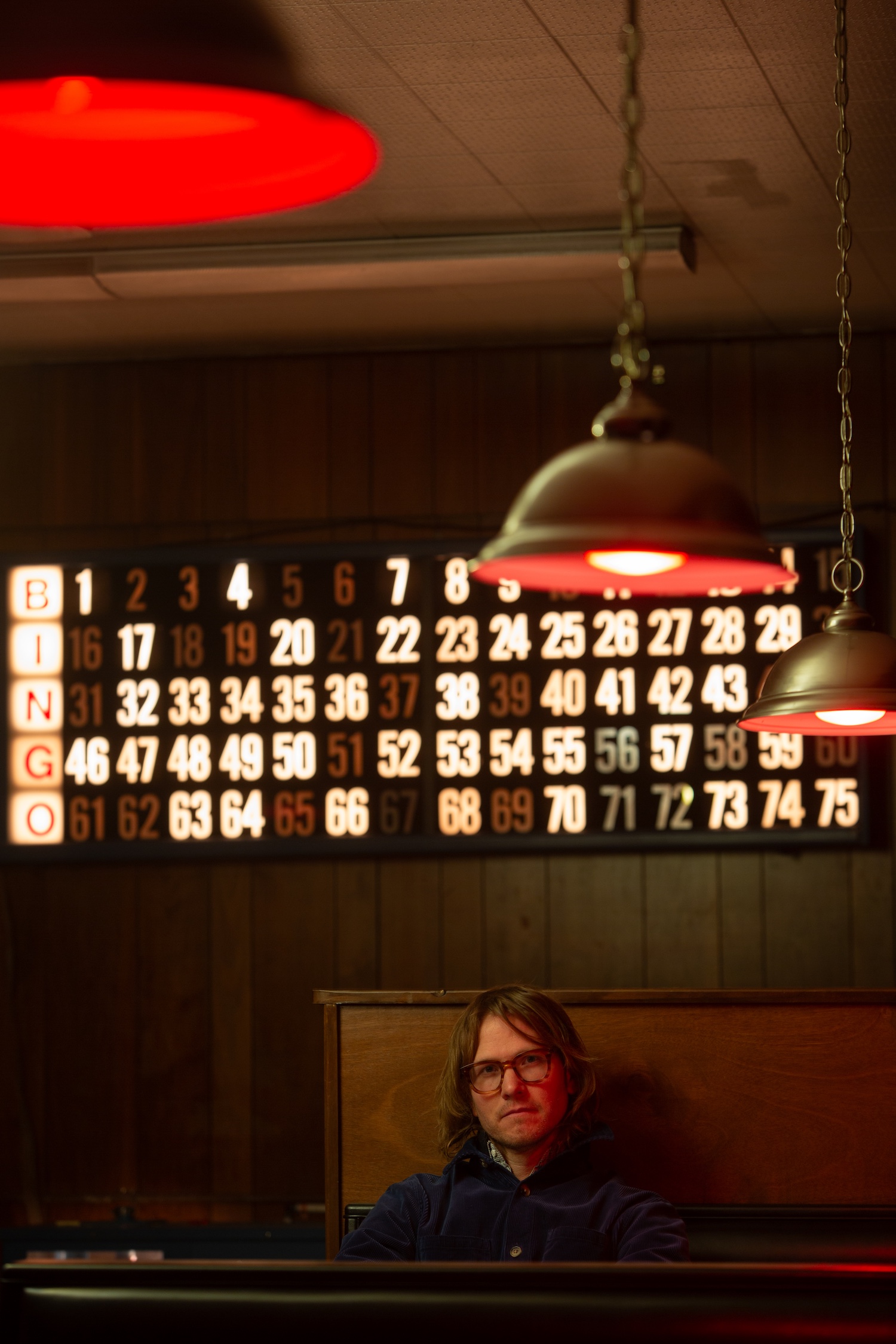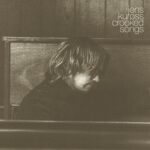With a delicate, unhurried voice and lyrics stuffed with uncertainty, singer/songwriter Jens Kuross returns with ‘Crooked Songs,’ an album that leans into emotion reasonably than simple solutions.
Stream: ‘Crooked Songs’ – Jens Kuross
Jens Kuross doesn’t supply options.
He’s not making an attempt to present you closure, or readability, or the sort of lyrics you may cross-stitch onto a pillow. What he presents as a substitute is way much less tidy… and way more intriguing.
On his newest album, Crooked Songs, the Idaho-based singer/songwriter leans all the way in which into ambiguity. The songs are fantastically melodic, emotionally uncooked, and simply cryptic sufficient to make you lean in nearer. Some sound like late-night confessions; others learn like unsolvable riddles. All of them really feel like somebody talking their fact whereas nonetheless determining what it means.
“The songs are each extraordinarily private but additionally not personally particular,” Kuross says. “I’m extra interested by what the listener may study themselves by way of them.”
That rigidity between intimacy and abstraction has at all times been a part of Kuross’ inventive DNA. After years of performing with The Acid and collaborating with Ry X, he stepped out on his personal, releasing a handful of solo EPs earlier than delivering his full-length debut in 2020: Artwork! on the Expense of Psychological Well being, Vol. 1. It was a report that wore its vulnerability on its sleeve, a slow-burning dive into emotional honesty.
With Crooked Songs, Kuross, a former LA session musician, sharpens that imaginative and prescient. This album, which was written, recorded and combined in his dwelling in Boise, marks a noticeable shift: It’s much less structured, however extra emotionally exact. He leaves house to interpret, with out ever absolutely spelling issues out – like a dialog minimize off mid-sentence, it leaves you wanting extra.
Co-producer Hayden Pedigo as soon as described Kuross’ sound as “Arthur Russell-meets-Harry Nilsson,” which captures the avant-garde detours and the basic pop coronary heart beating beneath. Kuross doesn’t draw back from that comparability. In truth, he leans in, clearly amused by it.
“I feel Hayden additionally mentioned I gave the impression of ‘Randy Newman-meets-Grouper,’ which I’d love much more,” he says.
It’s becoming. Crooked Songs lives in that hazy house between storytelling and soundscape; between realizing precisely what you are feeling and having no phrases for it in any respect. It’s an album that doesn’t demand your interpretation a lot as invite it. You’re not requested to “get it.” You’re requested to sit with it.

Throughout the report’s observe checklist, Kuross circles massive themes – love, loss, id, resiliency – however by no means tries to land on a set reply.
These are songs for people who find themselves nonetheless figuring issues out.
Expertise the complete report by way of our beneath stream, and peek inside Jens Kuross’ Crooked Songs with Atwood Journal as he goes track-by-track by way of the music and lyrics of his newest album!
— —
:: stream/buy Crooked Songs right here ::
:: join with Jens Kuross right here ::
— —
Stream: ‘Crooked Songs’ – Jens Kuross

:: Inside Crooked Songs ::

— —
“What I Miss Most of All”
Atwood Journal: Your lyrics repeat the thought of “leaving all these jealous days behind.” Was penning this tune extra about letting go of an individual or letting go of the model of your self that existed in that relationship?
Jens Kuross: Good query. I don’t know. I can’t even inform you if it’s really a few romantic relationship or not. I by no means sit all the way down to compose with an agenda. So so far as lyrics go my unconscious is doing the heavy lifting 90% of the time, and this tune isn’t any exception. All that’s to say that my relationship to my lyrics isn’t all that completely different from that of somebody who’s simply heard the tune for the primary time and is making an attempt to determine it out.
“No One’s Hiding from the Solar”
This tune blends confrontation with inevitability. While you wrote it, did “the solar” characterize fact, penalties or one thing else fully?
Jens Kuross: I like how “The Solar” is offered so ambiguously on this tune. It may be taken as both a supply of hope or of dread. Once more although, I got here to the lyrics with zero intentionality.
“Stereotype”
There’s a rigidity right here between religion, doubt and private accountability. How did you land on the metaphor of “stereo, stereo, stereotype” to seize that battle?
Jens Kuross: Properly, I’m not completely positive. The tune appears to be coping with the questions and rigidity you talked about. I feel that the stereotype line is a pleasant means of affirming that there’s nothing unique or particular about these questions. They may appear heavy or profound, however everybody struggles with them. They’re so common that they’re stereotypical.
“Beggar’s Nation”
There’s sturdy imagery of “beggars by the effectively” and “bleeding gasoline.” Did you envision this as a private reckoning, a social commentary or one thing else?
Jens Kuross: In all honesty I didn’t envision it as something. Once more, no agenda, zero intentionality. However I sat down to put in writing and what got here out got here out. I’m nonetheless figuring it out. There’s a not insignificant probability that listeners will resolve it earlier than I do.
“Hymn of Defeat”
There’s a quiet resilience within the perception that “what’s defeated me will sooner or later be defeated.” Was this tune based mostly on a particular expertise or extra of a lifelong philosophy?
Jens Kuross: This tune is exclusive in that the entire thing got here to me in a short time, or not less than the lyrics did. I wrote like seven or eight stanzas in the midst of a pair hours. Usually that’d take me months or years even. So, I don’t know particularly what it was born out of however no matter it was my unconscious actually wanted to get it out.
“Inside Joke”
While you wrote it, had been you pondering of a particular “inside joke” from your individual life or is it extra of a metaphor for feeling overlooked?
Jens Kuross: Listening to it retrospectively I hear somebody confused and perhaps even offended about being on the surface wanting in, but additionally questioning whether or not or not there is likely to be one thing quietly noble about being an outsider as effectively.
“By no means One for Combating”
The refrain accepts loss and resilience. Do you see the narrator as somebody who’s at peace with letting go or somebody who’s nonetheless quietly holding on?
Jens Kuross: Listening to it now, the narrator appears to be at peace.
“Crooked Tune”
The chorus “to cease this world from altering me” appears like a manifesto. Do you consider this tune as a defiance towards change or a means of preserving your truest self despite it?
Jens Kuross: To me, preserving your truest self however everyone seems to be welcome to search out their very own that means.
— —
:: stream/buy Crooked Songs right here ::
:: join with Jens Kuross right here ::
— —
— — — —

Hook up with Jens Kuross on
Fb, 𝕏, Instagram
Uncover new music on Atwood Journal
© Mark Oliver
an album by Jens Kuross

